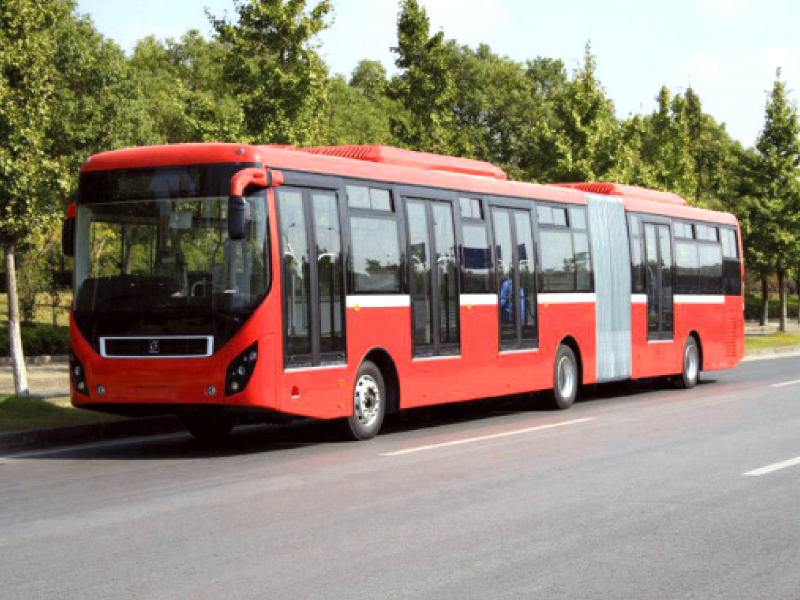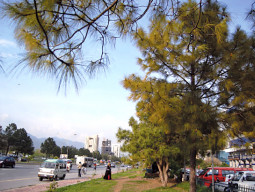
In a grand, green sacrifice for mass public transit, some 1,000 trees in the capital city can expect to be to the ‘gallows’.
A public hearing will be held at the Jinnah Convention Centre on May 3 by the Pakistan Environmental Protection Agency (Pak-EPA), prior to a verdict on the Environment Impact Assessment (EIA) report of the Islamabad section of Metro Bus Project.
“All stakeholders, including the interested or affected persons and the general public are invited to comment for or against granting environment approval for the project,” reads a public notice published by the Pak-EPA.
The notice further informed that a detailed EIA report submitted by the Capital Development Authority (CDA) on behalf of the Rawalpindi Development Authority (RDA) — the executing agency for the project — can be obtained from the Pak-EPA office in Sector H-8/2, or the office of the RDA chief engineer in Rawalpindi.

Furthermore, stakeholders and the public can submit their comments with the office of the deputy director (EIA/monitoring) until April 17, two weeks ahead of the hearing.
On March 13, National Engineering Services Pakistan (Nespak) — the project consultant — submitted an EIA report to Pak-EPA for approval.
Nespak is a major stakeholder in the project as it will be paid almost 3.5 per cent of the total cost of the project as consultancy fees. Earlier, reports suggested that the EIA report was intentionally made favourable for the project, ignoring many adverse effects on the environment.
Upon receipt of the document, however, Pak-EPA raised some 12 objections over it.
Nespak Changes Design to Save Decades-Old trees
After the CDA chairman’s bold step of categorically stating that the civic agency would not allow the felling of decades-old pine trees falling within the project’s route alignment along Jinnah Avenue, Nespak made considerable changes to the project design.
After this issue was reported by The Express Tribune, the chairman asked Nespak during a meeting last week to change the route alignment along Jinnah Avenue as some 250 pine trees — all over 40 years old — would have to be removed if the initial plan was implemented. “Now, instead of adding two new lanes on each side of the existing Jinnah Avenue, only one 12-foot wide lane will be added to each side,” said a Nespak official requesting anonymity.
In this way, two-and-a-half lanes on Jinnah Avenue would be available for general traffic.
However, the authority still needs to save around 1,050 trees along the green belt between 9th Avenue and the 8-series of sectors. Most of these trees are two-to-four-years-old.
The 13.5-kilometers-long Islamabad section of the Metro Bus Project will cost Rs 23.83 billion. Commencing from the IJP Road, it will culminate at Pakistan Secretariat.
The Punjab Environment Protection Agency (PEPA) had already approved the Rawalpindi section of the project. The transparency, or lack thereof, in the issuance of environmental approval by PEPA can be judged from the fact that construction work in Rawalpindi started on March 27, while a public hearing on environmental concerns was held a day later on March 28.
Published in The Express Tribune, April 3rd, 2014.












































COMMENTS
Comments are moderated and generally will be posted if they are on-topic and not abusive.
For more information, please see our Comments FAQ